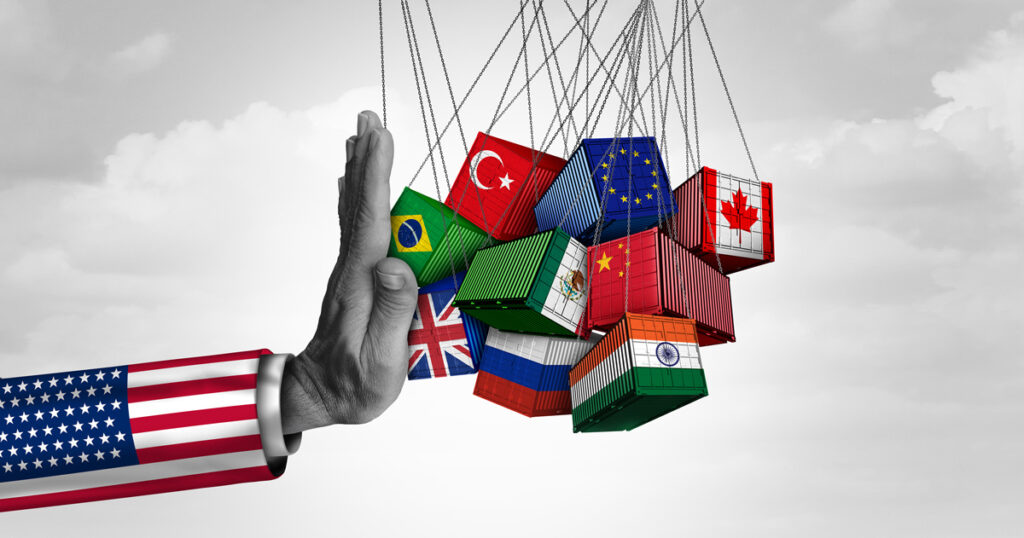
U.S. CANNABIS companies are facing new operational and financial challenges as sweeping international tariffs roll out under President Trump’s latest trade policy moves.
These new tariffs — particularly targeting goods from China, Southeast Asia and the European Union — are raising the cost of critical supplies and forcing cannabis businesses to rethink sourcing, pricing and logistics. Those who import inputs from China were facing the steepest tariffs — 145% — but on May 12, the U.S. and China had struck a termporary deal to reduce those to 30%.
Tariffs ripple through cannabis supply chains
Aside from the marijuana itself, which is grown domestically, much of the sector’s supply chain relies on global imports, especially for equipment, hardware and packaging. As of early April, a blanket 10% tariff was applied to goods from nearly 90 countries, while imports from China are now subject to tariffs as high as 145%.
For vape product manufacturers, the impact is immediate and substantial. Many key components like lithium-ion batteries and pod systems are sourced from China.
Businesses that previously absorbed a 25% tariff left over from the first Trump administration — and kept in place by Biden — are now facing significantly and possibly cost-prohibitive import costs.
Even companies that diversified production to countries like Malaysia and Indonesia are seeing new retaliatory tariffs affect their bottom lines. Trump imposed tariffs of 24% and 32% for Malaysia and Indonesia respectively, which were paused at 10% until July 2.
Packaging and pre-roll producers forced to adapt
Companies that import cannabis packaging and pre-roll materials are especially affected. Some are moving production of basic plastic packaging to the U.S., where costs are now comparable to tariff-burdened Chinese manufacturing.
However, the U.S. lacks the technology and capacity to produce the large amount of compliant packaging the industry needs, such as packaging that is child-resistant.
Also, more complex or labor-intensive items — like hand-rolled pre-roll cones or custom glass tubes — remain difficult to produce domestically due to infrastructure limitations and cost.
The majority of pre-rolled cones are sourced in India and Indonesia, but custom glass tubes to hold the pre-rolls are almost exclusively sourced in China.
One major supplier of packaging noted that even shifting to Indonesian production has its limits. While the country offers some relief, it lacks China’s capacity for customization and rapid turnaround, which many cannabis operators rely on.
For now, many companies have forced to absorb the higher costs for products from China or gradually pass them to consumers.
Some vendors seek new markets and strategies
To manage the fallout, some cannabis vendors are opening new distribution centers in Canada, bypassing U.S. entry points to avoid higher import duties. Others are diversifying suppliers, enhancing automation or bundling services to create more value without increasing prices.
Not every company is immediately passing on added costs. Some packaging firms and accessory brands have committed to holding prices steady, sacrificing margin in the short term to maintain customer trust. However, most agree that continued tariff pressure will ultimately make its way to consumers.
End users likely to feel the cost
While some cannabis brands rely on domestic suppliers and are insulated from the worst effects, the broader market — especially products with imported components — is expected to see higher prices as the tariffs persist.
Few operators can afford to absorb cost increases indefinitely. As one logistics executive put it, unless companies become more efficient across every part of their operations, rising import costs will quickly erode profit margins and costs will have to be passed on to consumers at some point to ensure they stay solvent.
